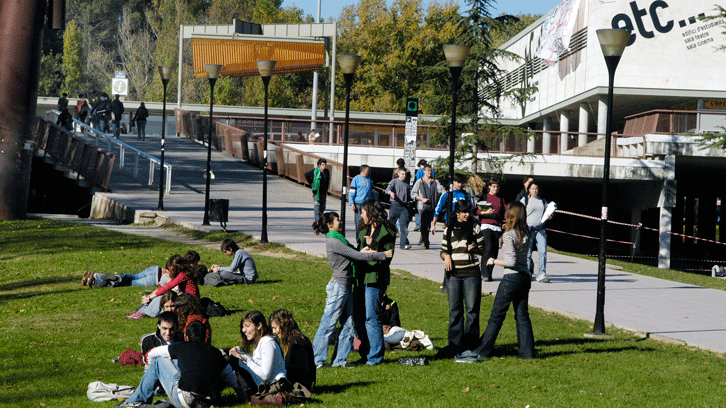Educational Inequalities of Students

In the context of a massification and democratization of the university system, the need to analyze the horizontal differences within the same educational system is emphasized as a source of educational differentiation and horizontal segmentation of the university.
This research aims at:
a) Exploring the evolution of social composition and the different strategies of students' access what they are doing and how they do it.
b) Identifying social origin as a differentiating factor.
c) Analyzing the main elements that explain it.
The research proposes a mixed methodology based on the analysis of the registration data of public Catalan public universities between 2002 and 2014 with special focus on the UAB, and semi-structured interviews with students of 1st year of 4 different degrees.
Some of the most outstanding results:
a) Some profiles have reduced their weight within the university in a greater proportion than the rest in the last years, especially if they had "lower risk" degrees in terms of price and difficulty reduction of 9.5% between 2011 and 2014, compared to 3.4%, in high-quality degrees.
They correspond mainly to profiles of adult people (-33%), women (-15%), alternative access routes (-25%) and low social origin (-14%), putting a brake on the process of democratization of students started in 80s and 90s. This evolution is accentuated in the last years analyzed, coinciding with the price increase of 2012.
Although this reduction has taken place, there is no confirmation of a reduction in equity rates in global access according to a social origin between 2011 and 2014. Nor is it confirmed a transfer of students of social origin under higher risk degrees to those of Lower risk, as would be expected with the increase in prices.
b) There has been a significant increase in enrollment to less than the recommended credits in only 3 academic courses, from 8% to 18% in students of low social origin who studied "risk higher" degrees such as Engineering, presumably in response to Increase in prices.
There has also been an increase in the intense job placement from (15 to 20%) in students of low ages of low social origin, as a way of responding to the economic crisis. The changes in the way of accessing the university are therefore noteworthy.
c) The students with the most fragile profiles women, adult people or low social origin study less expensive and difficult qualifications up to 48% less probability, and assume a part-time dedication and a greater job composition to the rest of the profiles. student.
d) Some patterns have been identified that trigger these behaviors, such as the underestimation of abilities, the feeling of debt to parents, lower economic resources, or the different aspirations and influences of third parties.
e) The result is that within the university different student profiles configure different access strategies, a source of educational differentiation and social origin being an increasingly discriminating factor in this differentiation.
It remains to be seen whether the future changes facing the university (3 + 2, specialization of universities...) will generate new axes of educational differentiation within the university system itself, according to the different student profiles.
References
PhD thesis. Strategies to university and social origin. The adaptation of the students to their socioeconomic profile and the institutional context as a source of differentiation educational. Author: Torrens Vilà, Dani. Defended the doctoral program in sociology. Directed by: Coll Planas, Jordi and Troiano Goma, Helena

